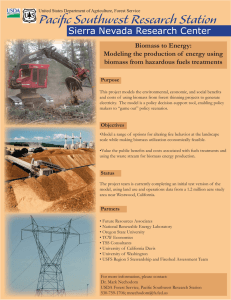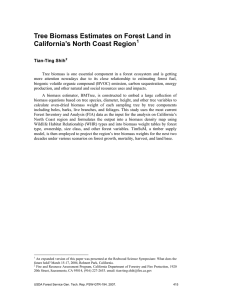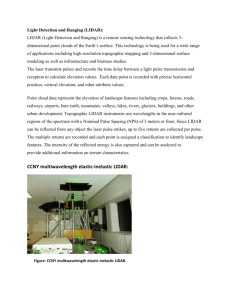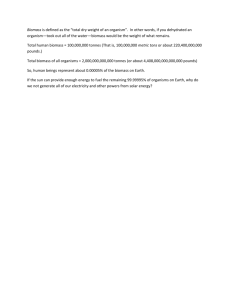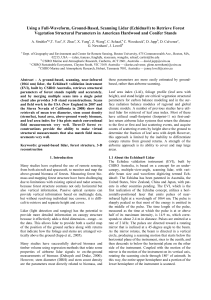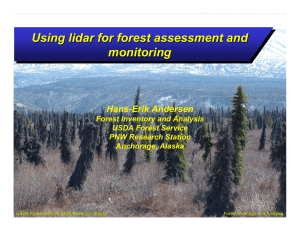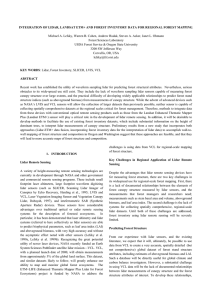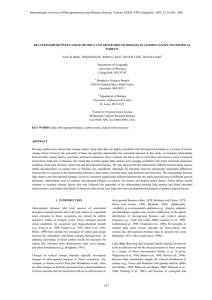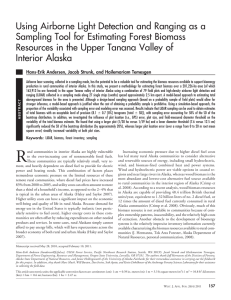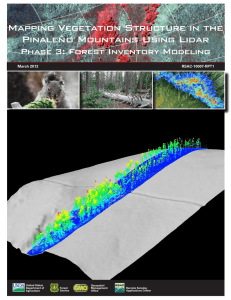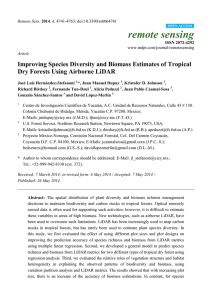GLOBAL ECOSYSTEM DYNAMICS INVESTIGATION (GEDI) LIDAR SAMPLING STRATEGY
advertisement
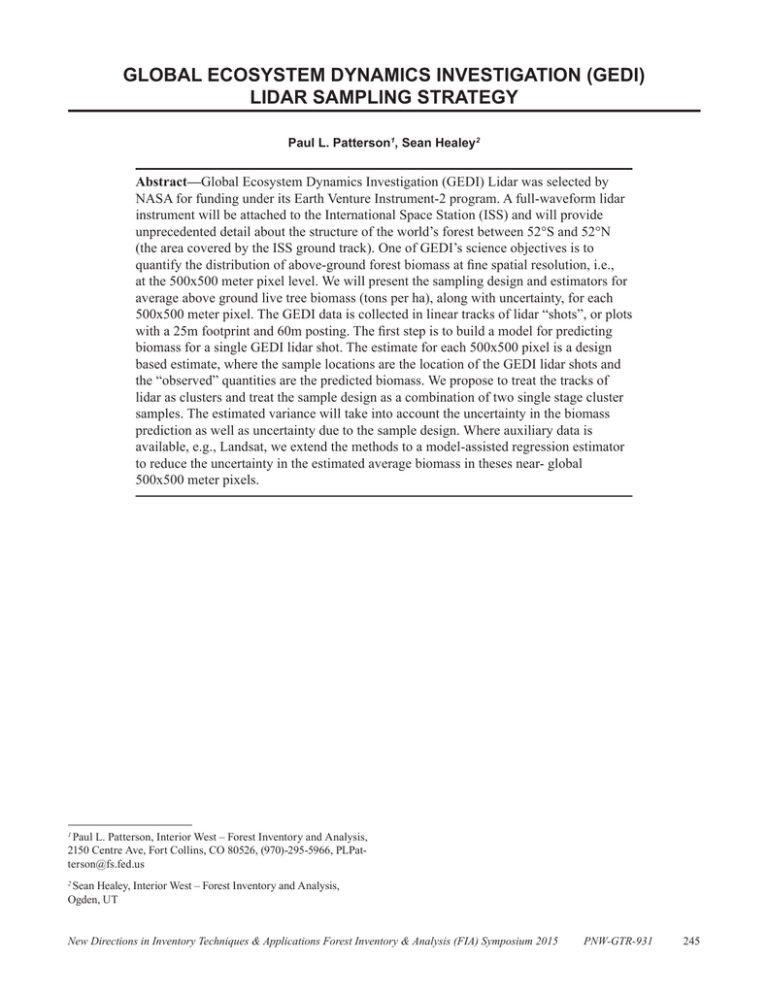
GLOBAL ECOSYSTEM DYNAMICS INVESTIGATION (GEDI) LIDAR SAMPLING STRATEGY Paul L. Patterson1, Sean Healey2 Abstract—Global Ecosystem Dynamics Investigation (GEDI) Lidar was selected by NASA for funding under its Earth Venture Instrument-2 program. A full-waveform lidar instrument will be attached to the International Space Station (ISS) and will provide unprecedented detail about the structure of the world’s forest between 52°S and 52°N (the area covered by the ISS ground track). One of GEDI’s science objectives is to quantify the distribution of above-ground forest biomass at fine spatial resolution, i.e., at the 500x500 meter pixel level. We will present the sampling design and estimators for average above ground live tree biomass (tons per ha), along with uncertainty, for each 500x500 meter pixel. The GEDI data is collected in linear tracks of lidar “shots”, or plots with a 25m footprint and 60m posting. The first step is to build a model for predicting biomass for a single GEDI lidar shot. The estimate for each 500x500 pixel is a design based estimate, where the sample locations are the location of the GEDI lidar shots and the “observed” quantities are the predicted biomass. We propose to treat the tracks of lidar as clusters and treat the sample design as a combination of two single stage cluster samples. The estimated variance will take into account the uncertainty in the biomass prediction as well as uncertainty due to the sample design. Where auxiliary data is available, e.g., Landsat, we extend the methods to a model-assisted regression estimator to reduce the uncertainty in the estimated average biomass in theses near- global 500x500 meter pixels. Paul L. Patterson, Interior West – Forest Inventory and Analysis, 2150 Centre Ave, Fort Collins, CO 80526, (970)-295-5966, PLPatterson@fs.fed.us 1 Sean Healey, Interior West – Forest Inventory and Analysis, Ogden, UT 2 New Directions in Inventory Techniques & Applications Forest Inventory & Analysis (FIA) Symposium 2015 PNW-GTR-931 245
